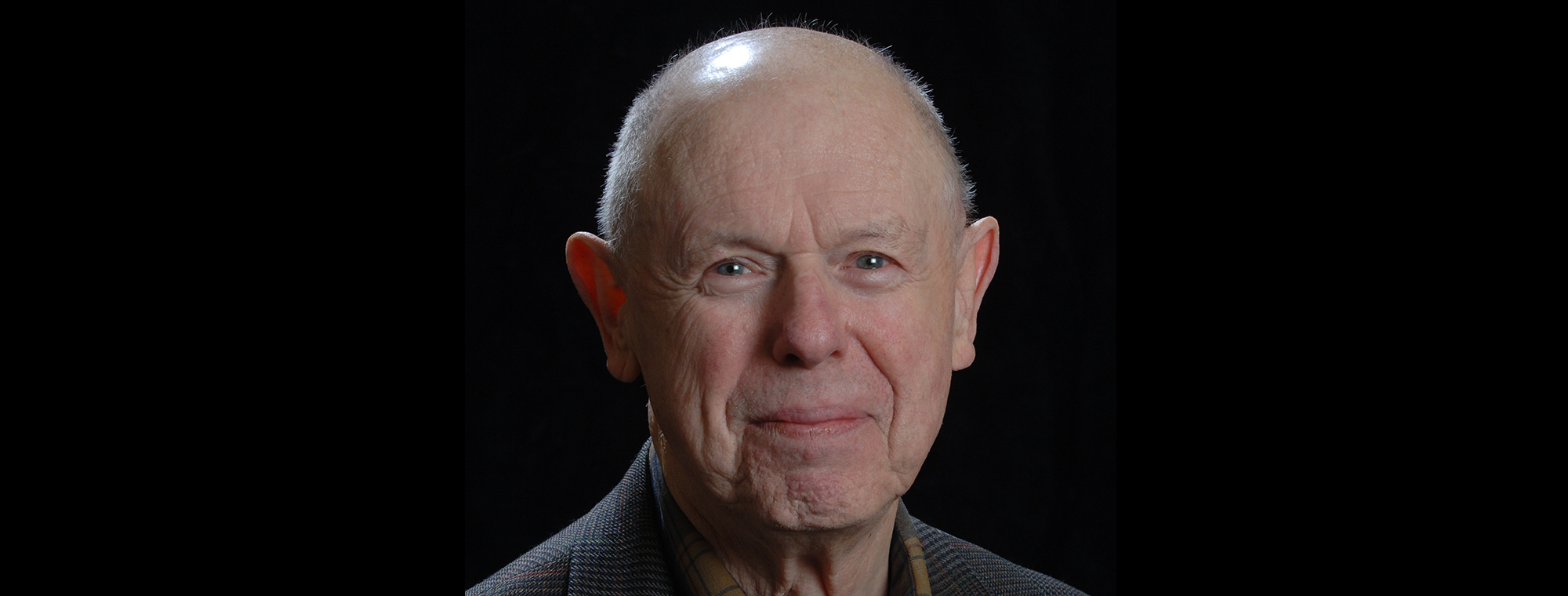Ploughshares Fund mourns the passing September 4, 2017 of longtime grantee, friend and East Asia expert Dr. John Lewis of Stanford’s Center for International Security and Cooperation (CISAC).
As director of CISAC’s Project on Peace and Cooperation in the Asian-Pacific region, Dr. Lewis was a central figure in Ploughshares Fund’s work on North Korea.
"John and his work truly embodied the Ploughshares Fund ideal — to support the smartest people with the best ideas to make the world a safer more secure place," said Philip Yun, Executive Director of Ploughshares Fund.
"He was a dear personal friend, mentor and teacher. John had unwavering commitment to doing what he could to promote better understanding between the United States and Asia. His energy was boundless. He was a remarkable person to work with " added Yun.
"John was an intellectual giant. He wrote a seminal book about China’s nuclear weapons program, and he was an early and frequent interlocutor with North Korean officials as their own ambitions became clear," said Ploughshares Fund’s former Program Director and fellow North Korea nuclear expert, Paul Carroll, who had the privilege of traveling with Lewis to North Korea in 2009.
"It was quite a memorable trip," Carroll continued. "John’s attention to detail was on full display at all times, from meetings with North Korean officials to collecting receipts. Even though Stanford might be rich in resources, John fastidiously walked up and down the aisles on the flight back collecting receipts from our delegation for everything from hotel rooms to airport coffee to make sure his accounting was in order," he recalled fondly.
Using the perch of CISAC at Stanford, Dr. Lewis was able to convene high-level officials and some of the best academic and technical minds to build a cohort of respected and highly knowledgeable expertise on North Korea. His own analysis and policy recommendations on North Korea’s nuclear program were among the best available to the US government.
Dr. Lewis' deep understanding of political motivations in Beijing and Pyongyang in respect to nuclear missile programs were invaluable to our work. He was one of the only experts we have supported almost continuously since 2002, even when we had to make way for Iran. We never wavered on Dr. Lewis. He was unmatched in the frequency and his consistency in meeting with North Korean counterparts. He always understood the need and the value of this.
Dr. John Lewis served as a US naval officer during the Korean War. He joined the Stanford faculty in 1968, and founded the Center for East Asian studies soon after. His accomplishments are many. He served on the Committee on International Security and Arms Control of the National Academy of Sciences; the Joint Committee on Contemporary China of the Social Science Research Council; and the National Committee on US-China Relations. He consulted Los Alamos National Laboratory; Lawrence Livermore National Laboratory; the US Department of Defense; the Senate Select Committee on Intelligence; and the Office of Technology Assessment of the US Congress.
He also played an outsize role in bridging the divide between East and West. Over the course of his life and career, Dr. Lewis made numerous visits to China, Japan, North Korea and the Soviet Union/Russian Federation, arranged for the first scholars from China to come to the United States and led two congressional delegations to Asia. He assisted business executives, academics, US government officials and US military officers in establishing contacts and working effectively in China since 1971. And in 2002-2003, he served as a participant in the Task Force on US Korea Policy. In addition to his role at CISAC, Lewis was the William Haas Professor of Chinese Politics, emeritus, at the time of his passing.
Dr. Lewis’s monumental contributions to resolving North Asia security issues will be sorely missed – especially during this volatile time of heightened tensions with North Korea. But it is his character that we’ll miss even more.
"John’s immense expertise was only matched by his extreme humility. While he would often wax about stories and experience, it was never self-congratulatory. It was always in service to solving a problem," Carroll recalled. "He truly lived the saying that there’s a reason we have two ears and one mouth: you’re more effective listening. He exhibited this. He listened carefully, regardless of the audience he was with, and spoke just as carefully when he was ready to do so."
His absence will be deeply felt by the Ploughshares Fund family. To honor his legacy, we will continue to do all we can to support CISAC and other efforts to reduce nuclear threats in Asia. Dr. Lewis has set an example for us all – his intellect, his attention to critical detail, and perhaps most of all, his humanity.
